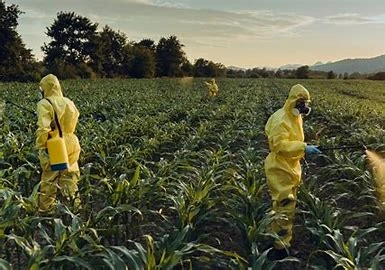

Reference source : Brazilian Senate
President Lula signed into law the Bill (PL) 1.459/2022 on Wednesday (Dec. 27), guiding in a new era for the approval and commercialization of pesticides in Brazil. Law 14.785 of 2023 is already in force, marking a paradigm shift in the regulatory landscape.
Originating from the long-debated Bill (PL) 1.459/2022, initially proposed by former Senator Blairo Maggi in 1999 and extensively modified in the Chamber of Deputies, this legislative overhaul addresses outdated regulations. After two decades of scrutiny, the text returned to the Senate.
One of the groundbreaking aspects of the new law is the revised timeline for the inclusion and modification of pesticide registrations. Ranging from 30 days to two years, the law addresses various aspects, including research, production, export, import, commercialization, or product use. Notably, Brazil's previous average of seven years for registering new products is set to see a significant reduction.
For new products, a 24-month requirement is introduced, with an option for research and experimentation products to benefit from a special temporary registration, subject to a swift 30-day analysis by the Ministry of Agriculture.
Crucially, the law designates the federal environmental agency for the registration of environmental control products and the Ministry of Agriculture for agricultural use. However, vetoes modified the original version, maintaining the tripartite system for registration and control of pesticides, involving the Ministries of Agriculture, Environment (via Ibama), and Health (represented by Anvisa).
Another aspect of the vetoed provisions involved the creation of an evaluation and registration fee to contribute to the Federal Agricultural Fund (FFAP). Despite the veto, the law suggests various funding sources for FFAP, including funds from the Federal Government, the National Environment Fund (Law 7,797 of 1989), and donations.
Other vetoes included provisions allowing the government to register products with pending re-analysis of ingredients, and exemptions for manufacturers from engraving warnings on packaging, both with concerns related to public health and environmental risks.
In terms of risk analysis, the new law shifts focus from expressly prohibiting certain substances to labeling as "unacceptable risk" those presenting hazards to humans or the environment. Additionally, the law eliminates the possibility of registration challenges from organizations, such as trade associations and consumer and environmental groups.
The legislation also increases fines for law violations, with amounts set proportionally to the severity of the offense. A novel provision allows agreements with state agencies for enforcement, with fines contributing to these agencies.
While the legislation repeals certain offenses, it introduces penalties for producing, storing, transporting, importing, using, or marketing unregistered or unauthorized pesticides. These crimes may result in a prison sentence of three to nine years, with aggravating factors considered.
If you want to access the GHS report, please Register here in GPC Intelligence Portal click here
